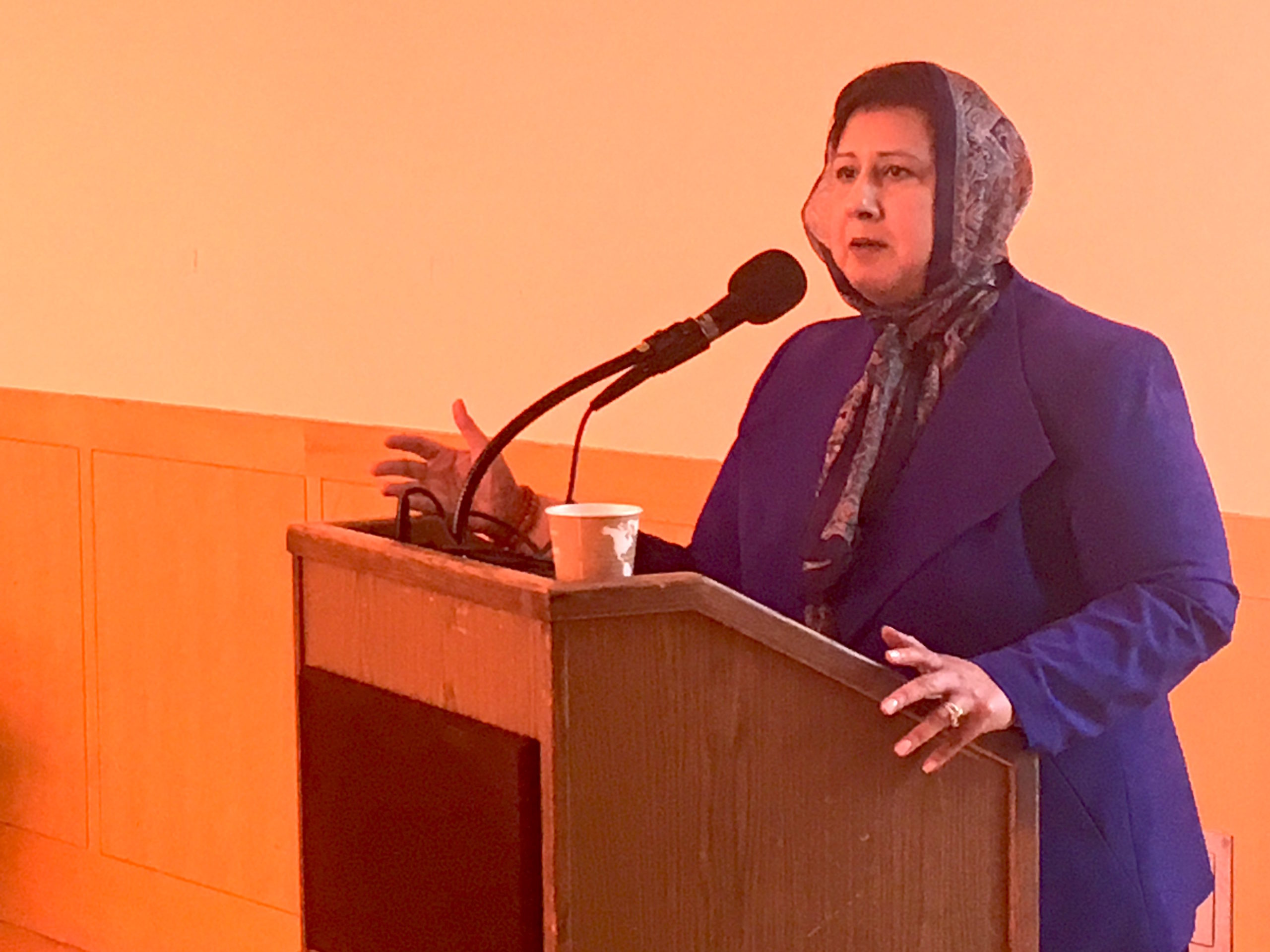A lack of distinction between cultural norms and religious practices has led to major misconceptions about Islam in the United States and other Western countries, a local Muslim leader said Wednesday.
Isma Chaudhry, president of the Westbury-based Islamic Center of Long Island, encouraged people to get to know Muslims personally so they could better understand the faith and how it is practiced in different societies around the world.
“Whenever we discuss something, we have to do a little more research and make sure we understand, is it cultural or is it a religious prescription?” Chaudhry, a Manhasset resident, told a crowd of about 85 people Wednesday afternoon at a talk sponsored by Reach Out America, a Great Neck-based political activism group.
Women wearing head coverings, for example, is prescribed in the Quran, the Muslim holy text, but women follow it differently across the world, Chaudhry said.
Some Muslim women in the U.S. choose not to cover their heads, while those in countries such as Saudi Arabia wear long dresses covering everything but their eyes, she said.
Laws restricting women’s rights in Muslim-majority countries are born from political and cultural practices, not any religious rules or edicts, Chaudhry said.
“Suppression is not prescribed in the Quran,” she said.
The fear of sharia, the religious law of Islam, being imposed in Western countries is unfounded because it cannot hold any authority in societies that are not totally Muslim, Chaudhry said.
Even predominantly Muslim countries that enshrine sharia in their laws are not truly following the system, she said.
Relationships between Muslims and people of other faiths are especially important following the election of President Donald Trump, who has banned citizens of seven Muslim-majority countries from entering the U.S. and suggested that Islam promotes terrorism.
Trump has defended the travel ban, issued Jan. 27, as necessary to maintain national security, but Muslim groups and civil liberties advocates have condemned it as an unconstitutional affront to immigrants’ rights.
Chaudhry last week said the ban made many of her congregants hesitant to visit their home countries for fear that they would not be allowed back in the U.S.
The election was a “rude awakening” for people who opposed Trump, who failed to step outside their “bubbles” to form relationships with people different from them, Chaudhry said.
“We were so arrogant that we lost that we needed the other,” she said.
Chaudhry and the Islamic Center of Long Island are hosting a Feb. 15 community forum at Westbury Middle School to discuss Trump’s travel ban, also featuring Rabbi Michael White of Temple Sinai of Roslyn.
Muslims in America consistently have to educate other people about their religious practices to avoid persecution, a burden not placed on practitioners of other faiths, Susan Gottehrer, director of the Nassau County chapter of the New York Civil Liberties Union, said at Wednesday’s event.
“Our own feelings about these things are really not what matters,” Gottehrer said. “What matters is that every religion is free in this country and should never be persecuted.”



